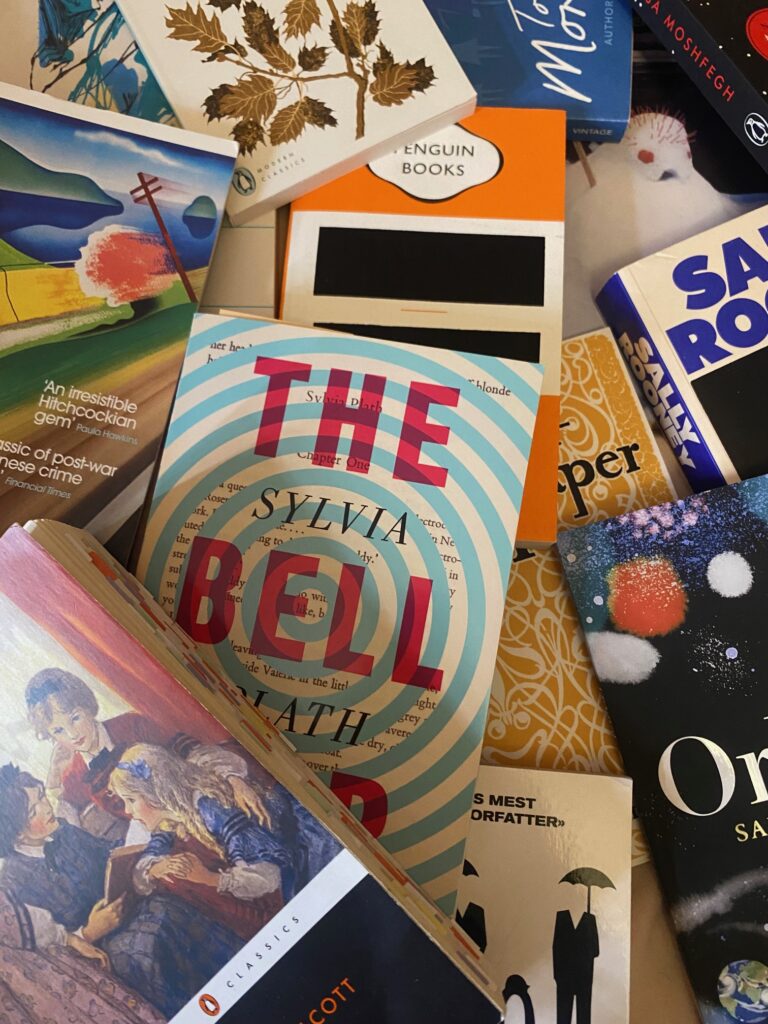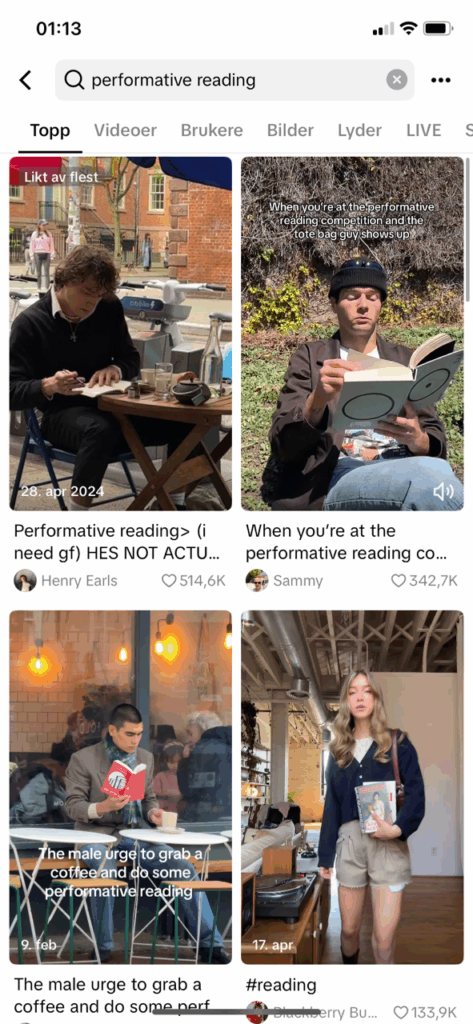I saw a TikTok-video where a boy sat on the outside of a café, reading Sylvia Plath. Or, I guess I should say “reading”, because the book were upside down.

After that it seems like more and more has popped up of boys doing exactly that – reading feminist, or highly regarded, literature on the outsides of cafés and restaurants. The book is their bait, and they are waiting for a great catch to walk by, impressed by this guy’s taste in books. That’s my prejudice, anyway.
And that’s what this essay is about, really. Prejudice and performance.
The French sociologist Bourdieu is an expert at that. Prejudice and performance. He believes that the books you’re reading, art you’re interested in, education you have, and sports you’ve done says a lot about you. I think he would regard Sylvia Plath and Dostoevsky highly, and a part of the “high society”. But pretending to read Sylvia Plath and Dostoevsky, on the other hand… I am not so sure about that.
Bourdieu also thinks that if you grew up rich, then you belong in the Sylvia Plath-Dostoevsky-world, but that if you’ve grown up on a farm with hard labour, you’re not fit to enter that same world.
Is it the same way with books, I wonder? If you’re a classics-girlie, are you considered above the romance- and sci-fi readers? And dosen’t readers who like a little smut belong in the classics world?
I enjoy (almost) all genres. I’ve read both classics and romances, and can safely say that I’ve been bored by, and adored both. But is one better than the other?
In order for a book to become a classic, they’ll have to had an impact on society, and influenced literary pieces that came after it. Note that the definition of what is (and isn’t) a classic not have anything to do with genres. A romance book can therefore, just as likely, become a classic as any other novel.
If we’d take Little Women as an example. This is a literary novel that’s also a well known classic. It tells the story of four sisters navigating life, and their different perspectives and values in the 1800s. Louisa May Alcott were a revolutionary author who depicted female relationships and perspectives on society, way before her time. The impact the book had on society, with it’s fierce fight in fighting stigmas and discrimination. We could also say that the book has inspired many more female writers to write their stories out in the world. The book (and the movie(s)) is also referenced everywhere. It is with other words safe to say that Little Women deserves it’s “classic”-title.
I remember reading Little Women on the bus, feeling silly. Just the week before I’d finished Colleen Hoover’s It Starts With Us (which I didn’t enjoy, but that’s besides the point). I felt a little like I were cosplaying a smart person, who didn’t really belong in that Little Women-Sylvia Plath-Dostoevsky-world. But then I finished the book. I cried after – spoiler – Beth died, and related to all of the four sisters in such a strong way. Needless to say, I enjoyed the book. More than enjoyed it – it had an impact on society, but on me as well. Now it’s one of my all time favourite books (look at my top 10-chart!).
The point is that I belonged into that world. I liked (like!) reading classics. But I belong in the silly romance-hot main male character-enemies to lovers-world as well. I really like reading contemporary romance books, even though they are regarded silly.
Because why do I call a novel silly when I enjoyed it? Isn’t that the important part?
Romance books have, in my opinion, been suppressed for a long time. And even now! People yell loudly about TikTok-books, and women only reading smut, without ever opening one for themselves. Stories that are about a man and a woman falling in love, is about so much more than just “smut”, and I’d like that prejudice to go away. Sure, a lot of them are different than the typical “classic” – but that dosen’t mean that they are bad. Different isn’t a synonym to bad.
But sure, when I visit my grandparents and they ask what I’m currently reading, I drag up Intermezzo from my backpack instead of talking about the Arthurian gay romance novel I’m reading on my e-reader. (You guessed it, It’s Art and Gwen are Not in Love by Lez Croucher – which I really liked! (but I probably wouldn’t say that to my grand-parents)) And maybe that makes me the same as the TikTok-boys who are reading Sylvia Plath upside down, but so be it. Reading performatively seems awful, but I mean, if they’re actually reading some of that impressive feminist literature that they’re holding, maybe it isn’t too bad.

I’m all for experiencing new genres and keeping the prejudices tucked inside the covers of Pride and Prejudice. Read what makes you happy (or what you think will bring you the biggest catch), and never be intimidated by, or look down at, people who read differently than you. I have it for good ear that they are probably just people as well.